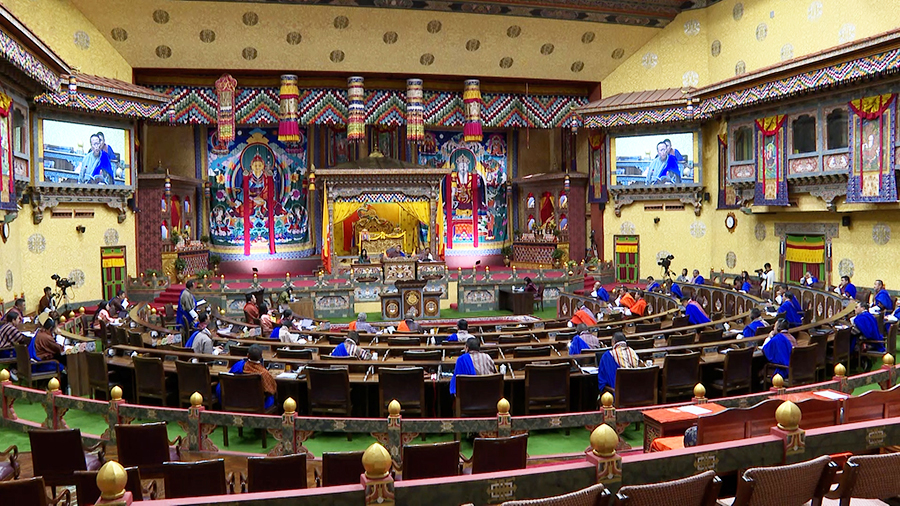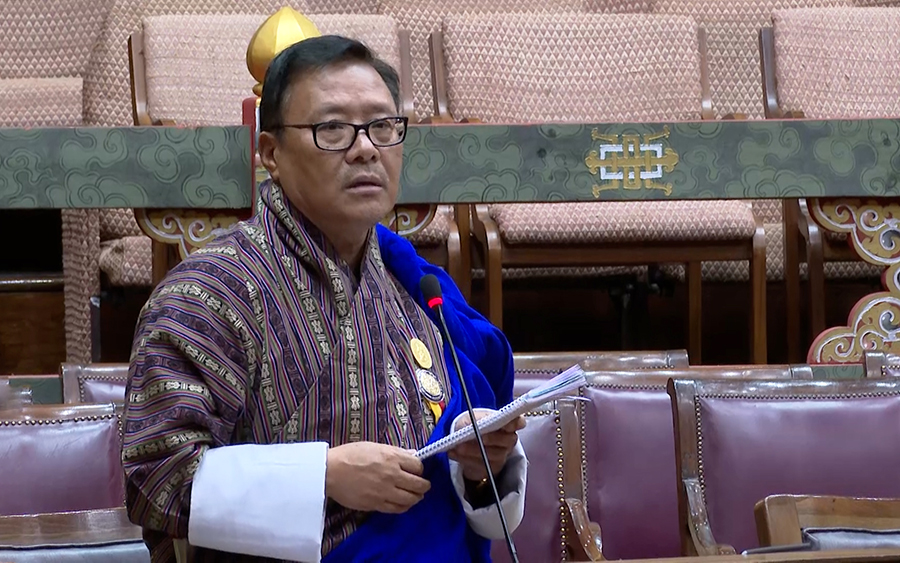 The National Assembly adopted the Excise Tax Bill, marking a major step in the country’s effort to discourage the consumption of harmful or addictive substances and promote healthier and more sustainable choices. Of the 45 members present, 43 voted in favour of the bill. The excise tax, set to take effect in January next year, will apply to tobacco, alcohol, carbonated drinks, supari, pan masala, and vehicles. The bill has been forwarded to the National Council for further deliberation.
The National Assembly adopted the Excise Tax Bill, marking a major step in the country’s effort to discourage the consumption of harmful or addictive substances and promote healthier and more sustainable choices. Of the 45 members present, 43 voted in favour of the bill. The excise tax, set to take effect in January next year, will apply to tobacco, alcohol, carbonated drinks, supari, pan masala, and vehicles. The bill has been forwarded to the National Council for further deliberation.
The excise tax will be borne by manufacturers, producers, and importers; however, the burden is expected to be passed on to consumers through increased prices.
The house endorsed the government’s proposal to levy an excise tax of Nu 1,200 per litre of pure alcohol content on all alcoholic beverages. Tobacco and tobacco products will also be taxed. Unstemmed, stemmed, and tobacco refuse will be charged Nu 1,500 per kg, while cigarettes containing tobacco and biri will be taxed at Nu 10 per stick. Chewing tobacco, jarda-scented tobacco, and snuff, among others, will also be charged Nu 1,500 per kg.
Additionally, the House approved a 20 per cent excise tax on electronic cigarette devices, instead of the 100 per cent proposed by the government.
 Economic and Finance Committee’s member Tashi Tenzin said, “The device itself does not contain tobacco, but tobacco is used with it. Tobacco is already taxed at 100 per cent. Globally, some countries tax the device at 5 per cent, while others do not tax it at all. So, we decided not to adopt either the 5 per cent or 0 per cent rate. Instead, we have decided to impose a 20 per cent tax on these devices.”
Economic and Finance Committee’s member Tashi Tenzin said, “The device itself does not contain tobacco, but tobacco is used with it. Tobacco is already taxed at 100 per cent. Globally, some countries tax the device at 5 per cent, while others do not tax it at all. So, we decided not to adopt either the 5 per cent or 0 per cent rate. Instead, we have decided to impose a 20 per cent tax on these devices.”
At the National Assembly yesterday, MPs voted to reduce the excise tax on carbonated drinks to 20 per cent following a proposal by the Lamgong-Wangchang MP.
However, the House agreed on 27 per cent following the Economic and Finance Committee’s recommendation today.
 Economic and Finance Committee’s chairperson Rinchen Wangdi said, “From the original 30 per cent tax on carbonated drink factories, we reduced it by 3 per cent, making it 27 per cent, and added 5 per cent GST, bringing the total to 32 per cent. So, the net increase is just 2 per cent. Moreover, these are well-established companies that can absorb the additional 2 per cent tax.”
Economic and Finance Committee’s chairperson Rinchen Wangdi said, “From the original 30 per cent tax on carbonated drink factories, we reduced it by 3 per cent, making it 27 per cent, and added 5 per cent GST, bringing the total to 32 per cent. So, the net increase is just 2 per cent. Moreover, these are well-established companies that can absorb the additional 2 per cent tax.”
Meanwhile, excise tax is exempted on electric vehicles, diesel and petrol, and heavy machinery such as bulldozers and excavators.
Hybrid vehicles will be taxed at 9 per cent.
For petrol cars with a cylinder capacity (cc) not exceeding 1200, taxed at 36 per cent excise tax.
Similarly, vehicles exceeding 1200 cc but not exceeding 1500cc, vehicles exceeding 1500 cc but not exceeding 1799 cc will be taxed 54 per cent and 59 per cent respectively.
And for diesel cars, vehicles not exceeding 1500 cc to vehicles exceeding 3000 cc will be taxed between 54 per cent and 90 per cent.
These changes will lower tax rates for many vehicles, making them more affordable.
Kinzang Lhadon
Edited by Tandin Phuntsho









